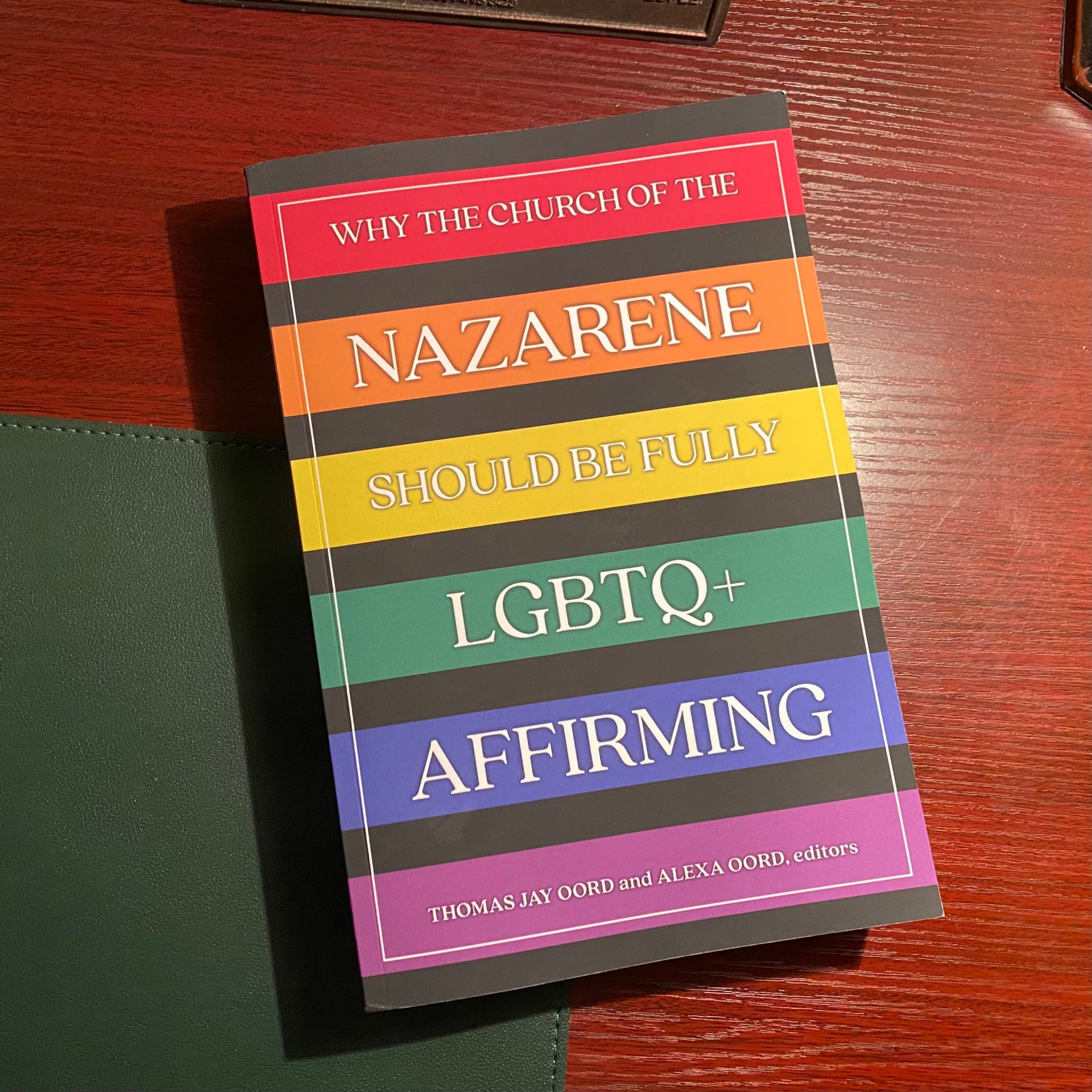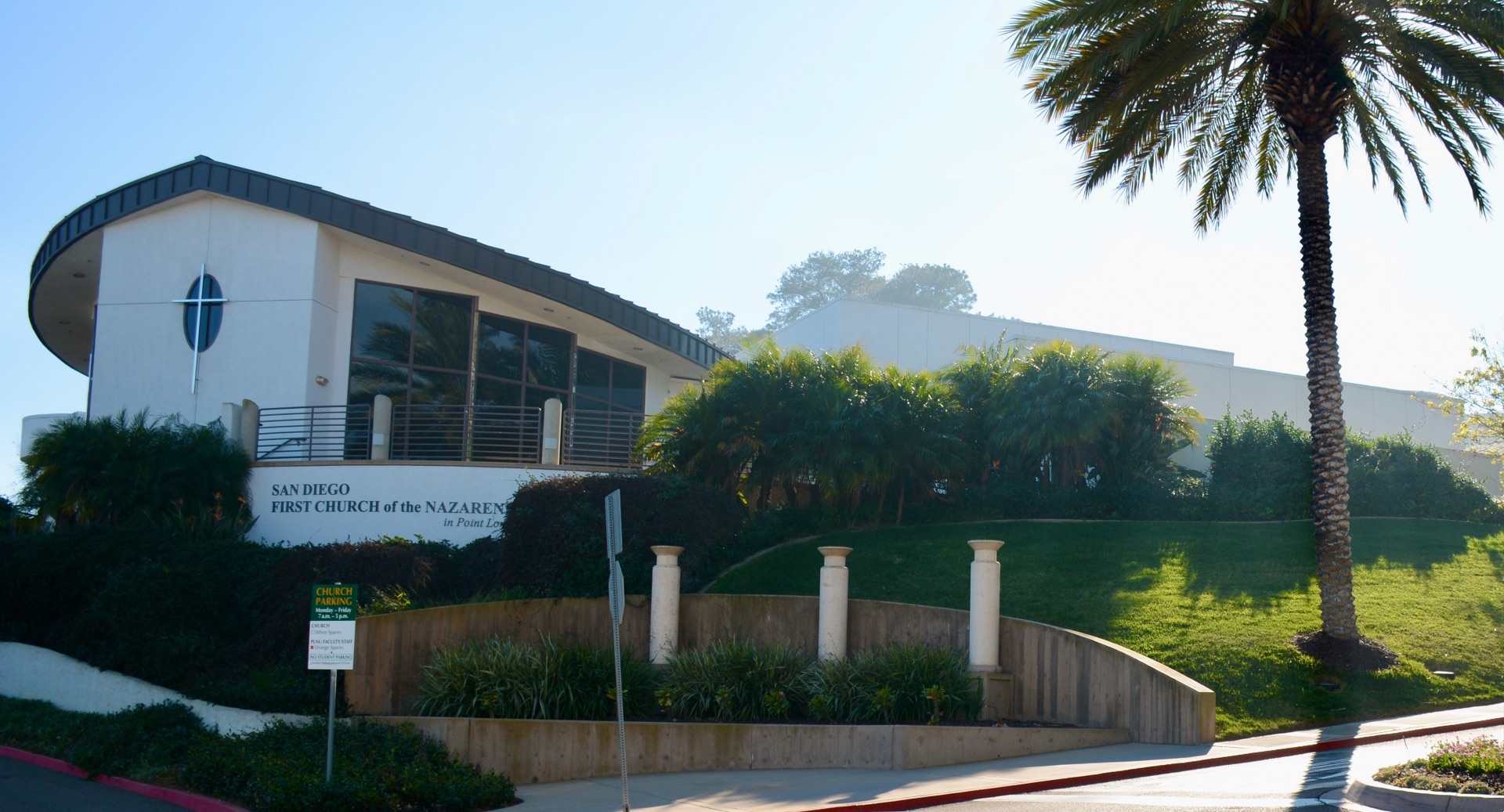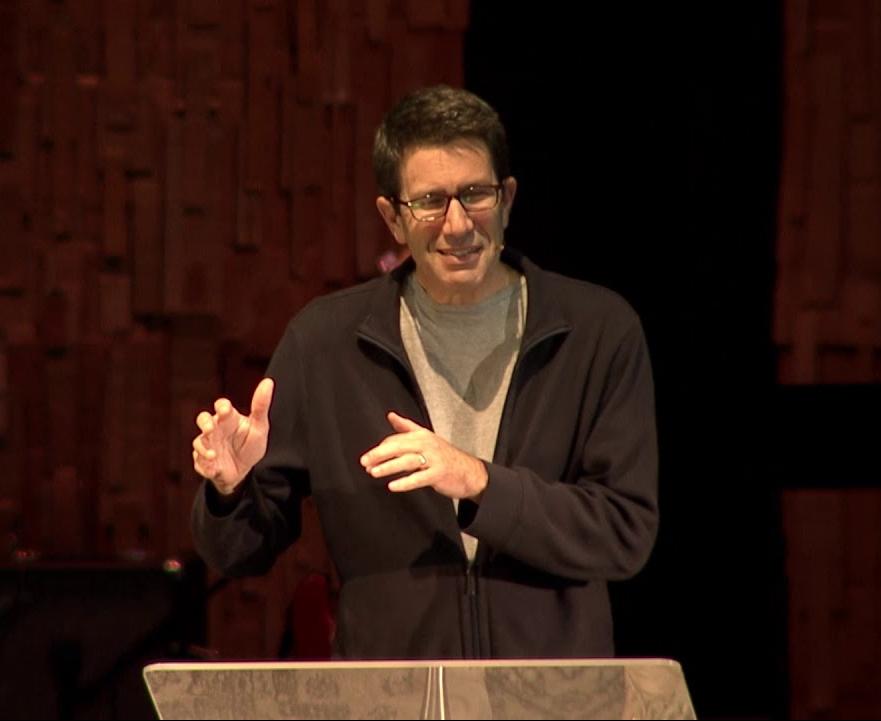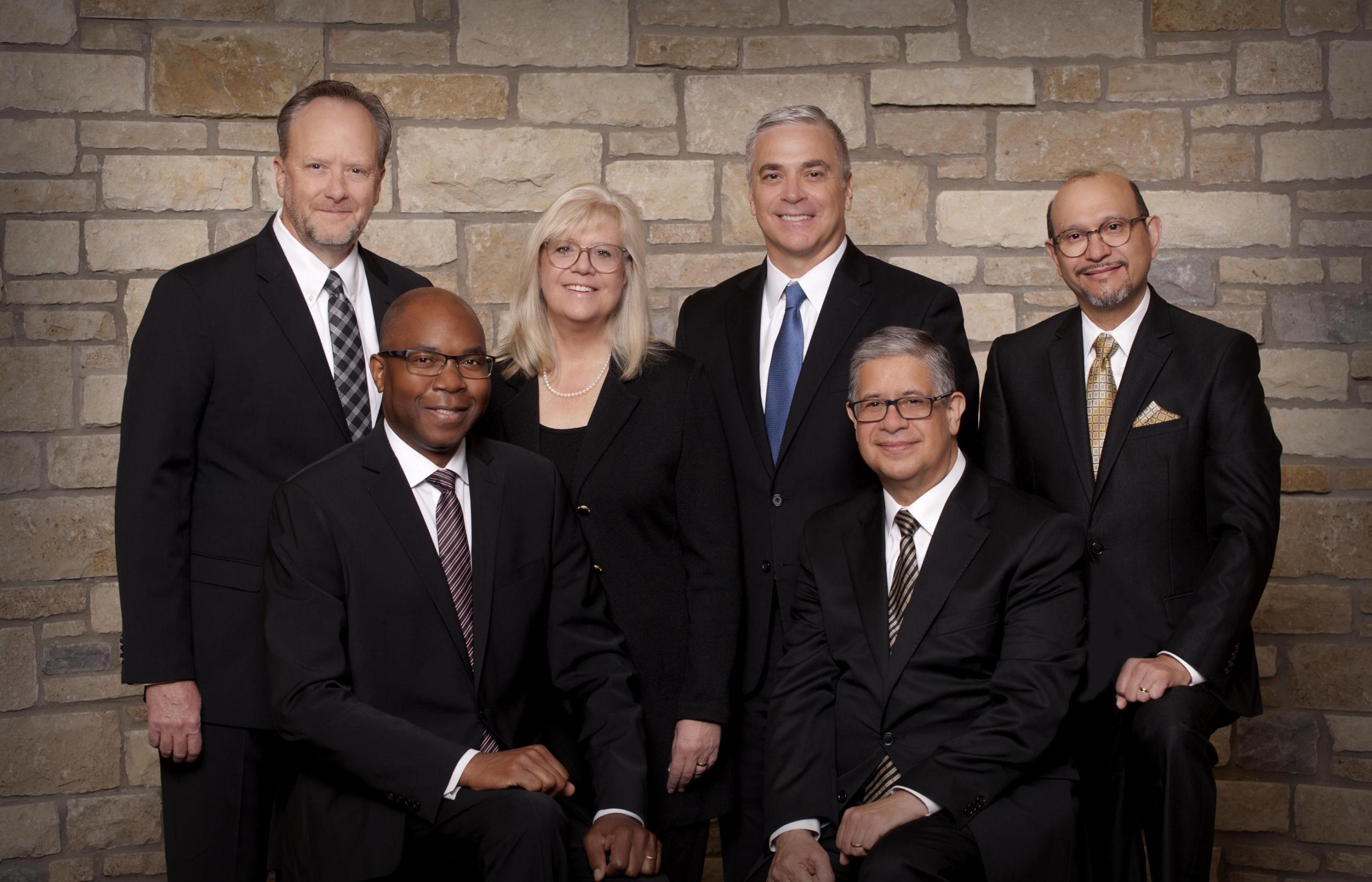
A highly-respected pastor suggested that the church should encourage conversation rather than conflict when considering LGBTQ+ affirmation.
In response, his denomination demanded he resign immediately, surrender his credentials, and then charged him with teaching doctrine out of harmony with the church and conduct unbecoming a minister.
His prosecution and trial are ground zero not just for LGBTQ+ inclusion, but what should or shouldn’t be considered essential doctrine, and how church judicial policies can be corrupted to silence dissent and expel anyone proposing change.
The Book
Rev. Selden Dee Kelley never aspired to become a central figure in how the Church of the Nazarene examines its relationship with the LGBTQ+ community. However, the legal, spiritual, and personal attacks he continues to endure reveal how a small number of idealogues can wield fear and hatred in attempts to divide the church by abusing anyone they perceive as a threat.
In late 2022, Kelley was invited to write an essay for a book exploring LGBTQ+ affirmation in the Church of the Nazarene, later titled Why the Church of the Nazarene Should Be Fully LGBTQ+ Affirming. He was a perfect choice for the “Scholarly Perspectives” section of the book: he has been the Senior Pastor of San Diego First Church of the Nazarene for the past seventeen years, and has decades of other ministerial service in diverse roles including youth pastor, church planter, and college-age minister. He also has four graduate degrees, and experience in prominent positions at three Nazarene institutions of higher education.
Kelley told me that rather than events or relationships forming his perspectives, “I just love to learn, love to reflect and love to try to make sense of the relationship between ancient scripture and current culture.”
In Kelley’s essay, while acknowledging there are diverse opinions within the church regarding LGBTQ+ affirmation, he said that instead of one side or another “winning,” open dialogue could forge a path forward that is both respectful and Christlike. “I hope we chart a course where disagreements are viewed as opportunities for learning and growth,” he wrote. “I fear that we are headed for a crisis confrontation just like other denominations before us. Why not have more constructive dialogue now before we get to that point? We have some wonderful facilitators in our ranks who could help us do this well.”
“I love the church and I long for it to make room for differing theological and interpretive approaches,” Kelley wrote, “as long as those approaches exhibit Jesus’ proclamation of love, holiness and justice.”

Kelley submitted his essay “A Hope for Change” February 11, 2023. Co-editor Thomas Jay Oord talked with me about Kelley’s essay: “Dee Kelley was both bold and cautious in writing for Why the Church of the Nazarene Should Be Fully LGBTQ+ Affirming. He was cautious, in the sense that he realized the possible implications of his contribution to this controversial book,” said Oord. “But he knew that public conversations about queer matters are long overdue in the Church of the Nazarene. So he acted boldly in calling for conversation.” Oord added, “I hope his holy boldness inspires others to do the same.”
“The essay is a call for dialogue and the hope that both sides of the dialogue be allowed to be stated,” said Kelley. “The call to dialogue is not because I think I have the answer, but because I think other viewpoints are worth considering…if both sides of the dialogue can’t be stated, then it is not a dialogue.”
After Kelley learned his essay was accepted and would be published, he automatically informed the leadership team of his church. On March, 16, he handed out to the church board of San Diego First Church of the Nazarene copies of his essay along with denominational published statements on sexuality and marriage.
Those statements are part of the “Covenant of Christian Conduct” that outlines principles for living a holy and Christlike life in the contemporary world. Though they do not address intersex, trans, and non-binary individuals, regarding same-sex marriage they state, “because we believe that it is God’s intention for our sexuality to be lived out in the covenantal union between one woman and one man, we believe the practice of same-sex sexual intimacy is contrary to God’s will for human sexuality.”
The “Covenant of Christian Conduct” also acknowledges that same-sex or bi-sexual attraction “may have complex and differing origins.” The church is admonished “to be a welcoming, forgiving, and loving community where hospitality, encouragement, transformation, and accountability are available to all.”
Kelley asked the church board to read over his essay along with the church statements on sexuality, and suggested they could discuss the issue as a group during their board meeting the following month, which they agreed to do.
Later that night, Kelley also updated his direct ministry supervisor (formally known in the denomination as a District Superintendent), Thomas Taylor, and sent him a copy of the essay. “I knew that we would need to talk, because we had talked on two previous occasions about this topic,” said Kelley. Of his past ministry opportunities, he said, “Fortunately I have lived in environments where creative thinking was encouraged and disagreement was safe.”
The Threat
Church of the Nazarene Southern California District Superintendent Tom Taylor called Rev. Dee Kelley asking to meet right away, and the following day, Saturday, March 18, they came face-to-face in Kelley’s office. Immediately, Taylor asked Kelley to resign and surrender his ministerial credentials.
During the meeting, Taylor accused Kelley of violating his church membership vows, which if true would even have excluded Kelley from preaching the very next day. Kelley also recalls Taylor claiming that he was in violation of the church constitution.
“I didn’t anticipate the urgency and severity of the response,” Kelley told me.

Kelley says that Taylor offered to discuss a generous severance package with the church board if Kelley chose to resign and surrender his credentials. Otherwise, Taylor warned, a judicial process would be initiated, and it would be “messy.”
“I was told I needed to make a decision right away,” said Kelley. “That is always a red flag for me.” Kelley said his response in that moment was unequivocal, that he informed Taylor, “I had no intention of making a decision about my future without first talking to my spouse.”
According to Kelley, Taylor stated that because the essay had already been submitted and approved for publication, “We have to move forward.” Kelley later wrote, “I was never asked to pull the essay from publication.”
Before he left, Taylor said he would give Kelley a day to make a decision.
“I was startled,” said Kelley. “Surprised. I was mentally scrambling because I was unfamiliar with the judicial process outlined in the Manual.” In the Church of the Nazarene, the Manual is a comprehensive guide for global church leaders, pastors, and members on matters related to doctrine, governance, and administration. It is typically updated every quadrennial through a protracted process involving proposals, representative voting, and eventual ratification. I suspect few Nazarene pastors have studied the Judicial Administration section of the Manual in detail until recent events.
By the time he spoke with Taylor again, Kelley knew what he had to do. “I wanted to keep my credentials,” he said, “so I chose the judiciary process.”
The Precedent
Unfortunately, eerily similar encounters have transpired over recent years in the Church of the Nazarene.
April of 2019, Nazarene pastor Jonathan Foster found himself sitting at a conference table with another local pastor, along with his District Superintendent, and one of six jurisdictional church leaders called General Superintendents who collectively govern the executive branch of the entire denomination. They were gathered in that board room because Foster had asked district church leaders if he could accept LGBTQ+ individuals into the church he pastored with respect and without judgment.
Like Dee Kelley, Foster wasn’t explicitly suggesting that the denomination should change its stance. He wanted to serve members of the LGBTQ+ community with Christlike love through his church.
As told by Foster, his District Superintendent admitted he was ill-equipped to facilitate an answer to some of the questions Foster posed. “I wasn’t demanding answers,” Foster wrote. “I was asking for space to walk with people, to not single them out, not suggest that their issues were different than anyone’s issues, and to walk with them in the midst of questions. Questions they have. Questions we all have.”

Even the presiding General Superintendent admitted that he too was unable to provide answers to the questions Foster asked. And then the District Superintendent turned and told Foster that he was out of alignment with the theology of the church, effectively ending his ministerial relationship with the denomination.
More recently, in March 2023, Mark Maddix, the Dean of the School of Theology and Christian Ministry at Point Loma Nazarene University, was fired for supporting an adjunct professor who had been removed for her allyship with the LGBTQ+ community. He had not had any previous disciplinary actions. The university provost claimed Maddix was dismissed due to “insubordination.” Though the university denies that any punitive measures were implemented because of LGBTQ+ issues, they are the only source stating that.
After I submitted an essay for the same book, I too was questioned by a church leader who functions in a supervisory role over me and the ministry I serve. Although I still consider this relationship friendly, I was asked if my published proposals for LGBTQ+ affirmation are not clearly “out of line” with the doctrine and teachings of the church. I remain optimistic, but I also realize that this conversation took place with witnesses, and there was a very clear promise that more questions will be asked in the future by individuals with even higher institutional authority.
There are several other examples, both in the recent past and currently in progress. I am personally aware of three ministers in the Church of the Nazarene who, as of this writing, are currently defending their credentials because of proposing the church’s published statements on sexuality should be reexamined and are experiencing various stages of the judicial process. Likely, there are more.
The Demand
After Rev. Dee Kelley was ordered by his District Superintendent Tom Taylor to either resign or face judicial consequences, the Southern California District Advisory Board (DAB) had an emergency meeting with Taylor. In the Church of the Nazarene, the DAB is responsible for providing guidance, support, and oversight to the District Superintendent and local churches within the district, assisting in matters such as pastoral appointments, financial administration, and adherence to denominational policies.
The next day, March 21, Kelley’s phone rang. On behalf of the DAB, Taylor formally asked Kelley once again to resign immediately and surrender his ministerial credentials.
In documents I have obtained, the DAB states that they collectively believe Kelley’s essay is itself a “teaching essay” that when published becomes “an act of promotion” for “doctrines out of harmony” with the church.

Additionally, the DAB’s basis for demanding his resignation and the surrender of his credentials relies not only upon that claim, but also that when first ordained as a minister, Kelley (as have all Nazarene ordinands) vowed that if he found he could not conform to the standards, doctrines, and government of the church or wholeheartedly support the church in its missions, he would voluntarily surrender his credentials and withdraw from ministry without charges or trial. So, the DAB contends that Kelley’s essay is not merely alleged proof of disharmony with church teachings but is supposed evidence Kelley betrayed his ordination vows.
Of course, legally speaking, this exemplifies a fallacy that even first-year law students avoid, called petītiō principiī, or “begging the question.” In other words, it is an argument that attempts to prove a claim by using a premise that already assumes the claim is true. In this case, the essay only constitutes evidence that Kelley was not keeping his ordination vows if one presumes the essay itself is proof that he is not in harmony with the doctrines of the church.
March 25, Taylor spent just under three hours with the church board of San Diego First Church of the Nazarene outside of Kelley’s presence. Four days later, Kelley met with the board to answer any questions they had. Some inquiries entailed verbal and written responses, and every board member was given an opportunity to not only ask questions but also censure him if desired.
In multiple statements to local San Diego area news outlets, church board member Dean Nelson said that the church board supports Kelley 100%. “Pastor Kelley and his family have provided outstanding service and ministry to our church since 2006,” said Nelson. “The congregation is overwhelmingly behind Rev. Kelley and his Christlike ministry.”
The Ruling
Meanwhile, at the Church of the Nazarene Global Ministry Center in Lenexa, Kansas, on March 29, the Board of General Superintendents (BGS) approved a ruling that declared entire sections of the Church of the Nazarene Manual are now considered “essential doctrine,” including even portions of the Manual that are excluded from the agreed statement of belief for church members.

Although the ruling made it a point to specify that the “Covenant of Christian Character” and the “Covenant of Christian Conduct” would be considered essential doctrine from now on, the language also included a vague reference to “those portions of the Manual pertaining to what we believe and how we live in light of those beliefs.”
The Manual is compartmentalized in sections that have overlapping subject matter but differing degrees of specificity for a reason: not all matters are essential, therefore ethical statements are and should be distinguishable from doctrine based on theology and scripture.
The new ruling advanced by the BGS was a legalistic distinction rather than a theological consideration. Some have pointed out, including Kelley, that the BGS lack the authority to determine what is or isn’t doctrine, which means the rule change violates the limitation of powers afforded General Superintendents.
This unprecedented shift in policy enabled Kelley’s denomination at that moment to take any technical statement in the Manual, and if a minister expresses any difference of opinion whatsoever, it could be considered grounds for teaching doctrines out of harmony with the church.
The memo notifying church rank and file of the rule change was disseminated April 10, which is significant.
The Charges
Within forty-eight hours of when the rule change was announced, two pastors who serve on the Southern California District Church of the Nazarene filed written accusations against Rev. Dee Kelley, as prescribed by the Church of the Nazarene Manual in sections dealing with contested discipline of a member of the clergy. Neither individual actually knew Kelley; one had briefly interacted with him in passing, and the other was a total stranger with whom he had never met or exchanged words.
The written accusations alleged that Kelley was teaching doctrines out of harmony with the doctrinal statement of the church, and had engaged in conduct unbecoming a minister. Until the rule change imposed by the BGS, published denominational statements on sexuality were never considered essential doctrine, so the rule change announced just two days earlier was the only technicality that gave the accusations any basis.

In May 2023, District Superintendent Taylor, the DAB, and eventually Kelley were officially notified of the signed accusations, and in accordance with Manual procedure, the DAB subsequently appointed a committee to investigate the charges. Kelley was interviewed by the investigative committee June 5, and their final report was submitted to the DAB June 22.
The same day, the DAB drew up formal charges against Kelley, and rather than form a District Board of Discipline, they requested that a Regional Board of Discipline adjudicate the case, an uncommon strategy. That means that instead of colleagues who have worked in the same geographical ministry area as Kelley serving as a jury of his peers, the jurisdictional General Superintendent, Carla Sunberg, would hand pick the individuals who will decide his fate.
Although only two signatures are required to officially charge a minister of wrongdoing, the DAB submitted the charges with four signatures.
An email notified Kelley the next day that the denomination he had served faithfully for most of his life had decided that he, along with his entire future as an ordained minister, shall be put on trial.
The Reaction
News began to spread ahead of the brewing storm. The looming trial quickly found public light, but many of the details surrounding Rev. Dee Kelley’s months long ordeal had not been shared. Nevertheless, more than a few recognized that what was happening was not only unfair, it was also unprecedented.
James Copple, founder of The 1908 Project that promotes dialogue and conversation around difficult issues within the Church of the Nazarene, believes Kelley was strategically selected for persecution. “I think he was targeted because he was widely known and respected,” Copple told me. “He became the ideal target to warn the rest of the clergy that they were vulnerable.”

Other colleagues of Kelley who are personally aware of the positive impact his ministry has made upon the community were outraged. “I was angered,” said Craig Keen, an author, professor, and ordained Deacon in the Church of the Nazarene. “[The] reasons for going after Dee were so contrived, so strategically inhumane, that I felt it was a new low for an already deeply compromised institution.” Keen told me, “This is just the kind of thing a frightened institution does, when it wants to maintain the power it has garnered.”
Many members of Nazarene clergy have connected the unpopular rule change that potentially includes any published denominational statement to be “essential doctrine” as an ex post facto retroactive power move intended to control dialogue and suppress dissent. “I am certain that they did that in order to lay into Dee and others like him. It is a convenient tool for doing what they wanted to do,” said Keen.
“Formally, that declaration makes a failure to run all meetings according to Roberts Rules of Order an offense for which one’s credentials might be taken away,” Keen pointed out. “Arbitrary acts increase both its power and the fear that makes its members easier to control.”
“If the doctrine is immutable and unquestionable then any such challenges from all respective sides is a threat that must be snuffed out Spanish Inquisition style,” said one Nazarene clergy member under condition of anonymity.
A member of Nazarene clergy who interacts with both global and district church leaders behind the scenes warned me personally, “Trust no one.”
Many Nazarene pastors and ministers I spoke with expressed fear of reprisal for remarking on the matter.
More than a few have interpreted the actions against Kelley as political posturing. “Most on the left side of this issue are simply trying to have a conversation. There’s nothing wrong with that,” said a member of the clergy who chose to speak anonymously. “The conservatives are too worried about being ‘right’ to have that conversation.”
“The message many of us are taking away is, ‘No, you can’t even discuss this unless your perspective is homosexuality is an abomination,’” said Rev. Bruce Barnard, an ordained elder in the Church of the Nazarene who has written academically about how churches respond to LGBTQ+ issues. “And because of that many young clergy, and a few of us old clergy, are simply ready to walk away.”


















